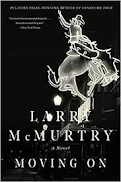Frans de Waal, Different: Gender through the Eyes of a Primatologist
This was an interesting read, though it didn't tell me much I didn't already know. It's as much about the sex lives of primates as gender, though to be fair de Waal is looking about how different genders in primates and other mammals deal with sex and the sex drive. There's a bit about how kids of different genders choose and respond to toys, and and another bit how boys need rough and tumble play so they can learn to deal with their greater physical strength -- again, none of this is really news. A lot about bonobos, some of which I didn't already know.
There are bits about trans people, and about LGB mammals. One review calls this book superficial, and I get that -- I would have liked more depth in places. Still, very readable, and if you don't already know everything about gender and biological sex and what bonobos do v. what chimps do v. what humans do, it's very much worth reading.
Haigh, Jennifer, Mercy Street
The center of this novel is a woman's clinic in Boston, in which -- among other things -- abortions are performed. That makes it sounds very ripped-from-the-headlines, but in fact it's a thoughtful look at the lives of the people who work in the clinic, and the lives of those who stand outside protesting abortion and harassing those heading into the clinic.
The main characters is a counselor at the clinic, and through a series of her reminiscences we watch her grow up as the impoverished child of a teen mother in rural Maine, and watch the steps that lead her to this job. There is also a kind of funny dope seller who is being put out of business by the legalization of marijuana in Massachusetts.
Well-written and absorbing. I've requested all the other books by Haigh which our library owns.
Zhang, Jenny Tinghui, Four Treasures of the Sky
I can't exactly recommend this one, although I read it straight through. A first-person narrative, it tells us about Daiyu, who has a blissfully happy childhood in Northern China, until her parents vanish one day -- arrested, as we later learn, and then executed.
Her grandmother, fearing Daiyu will be next, disguises the 12 year old as a boy and sends her off to fend for herself in the nearest big city. Just as Daiyu is finding her feet there, she is kidnapped and shipped to a brothel in San Francisco. Indomitable, she orchestrates her escape, ending up in Pierce, Idaho, where -- still disguised as a boy -- she works in a Chinese-owned grocery and saves her money to return to China. Unfortunately, it is the early 20th century, and racism against Chinese is rising fast. The book, as Zhang tells us in a afterwards, is based on a historical event in Pierce, Idaho, which is to say the lynching of five Chinese immigrants. That's how this book ends too. I didn't exactly enjoy reading it, despite the moments of real beauty, and I don't think I will read it again.
Karen Joy Fowler, We Are All Completely Besides Ourselves
I read this one because I loved Fowler's new novel, Booth, so much. This one wasn't as good as that one, which is, after all a masterpiece, but it was pretty good. Other reviews talk about the "twist" in the story, but it's not really much of a surprise, so I'm not going to dance around it. This is the story of a family that raises an infant chimp alongside their own children, in one of those experiments done in the 1970s and 1980s, to see if an ape can be taught language -- sign language, obviously -- when raised in a human household.
As with most of the experiments, this one is terminated when the chimp, who has been raised as a human, becomes large enough to be dangerous. Most of the story concerns what happens after that. The chimp's human brother and sister have their lives completely derailed by the loss of their sister (as they see it), and both spend much of their lives coming to terms with that loss.
Fowler is an excellent writer, and there is a (mostly) happy ending, but this is grim reading, dealing as it does with the abuse of animals and the unnecessary cruelty of some of the scientists involved in animal experimentation.
Kage Baker, Garden of Iden et al
I re-read all of Kage Baker again, though I usually save her for when I'm sick. Like Octavia Butler, Baker died far too young, but she did, at least, get to finish her Company series.
If you like science fiction, historical novel, cyborgs, and a soupcon of romance, I highly recommend Baker. She also wrote several fantasy novel which are funnier, and a YA novel, Bird on the River, which is excellent.
Ursula Le Guin, The Found and the Lost
This is a collection of Le Guin's novellas. It contains two of my favorites, Paradises Lost, and The Matter of Seggri, but these are all good. Aside from her early novels, which I do not like (including, I admit, A Wizard of Earthsea), you can't go wrong with Le Guin. The only trouble with this book is that it is massive, which means it will be difficult to read if you like to read, as I do, lying on your back on the sofa.








